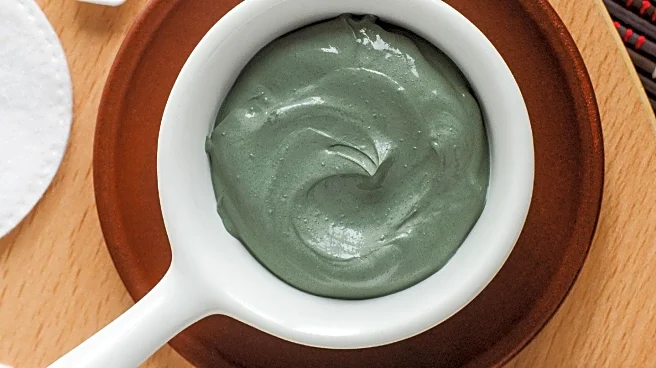What's Happening?
A study conducted by researchers from the University of São Paulo and Lusófona University in Lisbon has evaluated the short-term effects of clay-based face masks. The study focused on red, green, and black clays, revealing a significant reduction in skin oiliness after application. However, the effects were temporary, with sebum levels rebounding past baseline two hours after removal. The study found no lasting changes in skin firmness or elasticity, challenging claims of anti-aging benefits. The research highlights the immediate but short-lived oil control effects of clay masks, suggesting limited potential for long-term sebum regulation without repeated use.
Why It's Important?
The study provides valuable insights for manufacturers and consumers regarding the efficacy of clay masks in oil control. While the masks offer immediate benefits, the lack of long-term effects may influence consumer expectations and product marketing strategies. Brands promoting anti-aging or firming benefits may need to substantiate claims with long-term data. The findings also emphasize the importance of ingredient safety, particularly concerning heavy metal levels in clays, which could impact formulation choices and regulatory compliance.
What's Next?
Further research is needed to explore the isolated effects of each clay type and their performance in different formulations. Brands may consider developing products that combine clay masks with other ingredients to enhance long-term benefits. The study's findings could lead to more informed consumer choices and drive innovation in oil-control skincare products.









